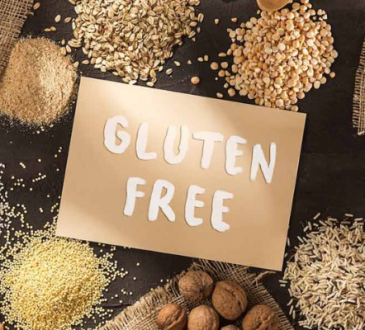Exploring the Health Benefits of Probiotic Foods
In the ever-evolving landscape of nutrition, one term that has gained significant traction in recent years is “probiotics.” These tiny organisms, often referred to as “good bacteria,” wield immense power when it comes to our health, particularly in the realm of digestion. Probiotic foods, which are rich sources of these beneficial microbes, have emerged as stars in the health and wellness arena, offering a myriad of benefits beyond just gut health. In this comprehensive exploration, we delve into the fascinating world of probiotic foods, uncovering their health-promoting properties and shedding light on why they deserve a place of prominence in our diets.
Contents
Understanding Probiotics: The Guardians of Gut Health

Before delving into the health benefits of probiotic foods, it’s crucial to grasp the concept of probiotics themselves. Probiotics are live microorganisms, primarily bacteria but also some types of yeast, that confer health benefits when consumed in adequate amounts. While they naturally inhabit our bodies, particularly our digestive tract, they can also be found in certain foods and supplements.
The gut microbiota, comprised of trillions of microorganisms, plays a pivotal role in maintaining digestive health and supporting overall well-being. Probiotics are integral members of this microbial community, aiding in digestion, synthesizing essential nutrients, and bolstering the immune system.
Probiotic Powerhouses: Exploring Probiotic Foods
Probiotic foods are those that contain live and active cultures of beneficial bacteria or yeast. While the variety of probiotic-rich foods is vast, some of the most notable include:
1. Yogurt: Perhaps the most well-known probiotic food, yogurt is fermented with lactic acid bacteria, such as Lactobacillus bulgaricus and Streptococcus thermophilus. Opt for plain, unsweetened yogurt to reap the maximum probiotic benefits without added sugars.
2. Kefir: This fermented dairy beverage is teeming with probiotics, thanks to its unique combination of bacteria and yeast cultures. Kefir boasts a tangy flavor and a creamy texture, making it a versatile addition to smoothies, cereals, or enjoyed on its own.
3. Kimchi: A staple in Korean cuisine, kimchi is a spicy fermented cabbage dish that’s brimming with probiotics. Packed with vitamins, minerals, and beneficial bacteria, kimchi not only supports gut health but also adds a flavorful punch to meals.
4. Sauerkraut: Another fermented cabbage creation, sauerkraut offers a crunchy texture and tangy flavor profile. Rich in probiotics and vitamin C, sauerkraut is a versatile condiment that pairs well with sandwiches, salads, and various dishes.
5. Kombucha: This effervescent fermented tea has skyrocketed in popularity for its refreshing taste and purported health benefits. Kombucha is produced through the fermentation of sweetened tea with a symbiotic culture of bacteria and yeast (SCOBY), resulting in a probiotic-rich beverage with a slightly tart flavor.
6. Miso: A traditional Japanese seasoning made by fermenting soybeans with salt and koji (a type of fungus), miso is a flavorful addition to soups, marinades, and dressings. Along with its probiotic content, miso is prized for its rich umami taste and nutrient density.
7. Tempeh: Originating from Indonesia, tempeh is a fermented soybean product that’s dense in nutrients and probiotics. With a firm texture and nutty flavor, tempeh is a versatile ingredient in vegetarian and vegan cuisine, offering a hearty source of plant-based protein.
The Health Benefits of Probiotic Foods

- Improved Digestive Health: Probiotic foods promote the balance of beneficial bacteria in the gut, which is essential for optimal digestion and nutrient absorption. They can alleviate digestive issues such as bloating, gas, and constipation, while also supporting a healthy bowel movement.
- Enhanced Immune Function: The gut microbiota plays a crucial role in regulating immune function, and probiotic foods contribute to this by bolstering the population of beneficial bacteria. A robust gut microbiome can help fend off pathogens and reduce the risk of infections.
- Reduced Inflammation: Chronic inflammation is linked to a host of health problems, including autoimmune diseases, heart disease, and obesity. Probiotic foods have been shown to modulate inflammation in the body, potentially lowering the risk of inflammatory conditions and promoting overall wellness.
- Support for Mental Health: The gut-brain axis, a bidirectional communication network between the gut and the brain, is increasingly recognized for its role in mental health. Probiotic foods may exert beneficial effects on mood and cognitive function by influencing neurotransmitter production and reducing stress-related inflammation.
- Management of Weight and Metabolism: Emerging research suggests that the gut microbiota plays a role in metabolism and weight regulation. Probiotic foods may help support a healthy weight by promoting the growth of beneficial bacteria associated with leanness and metabolic health.
- Enhanced Nutrient Absorption: Optimal gut health is essential for absorbing nutrients from food effectively. By maintaining a diverse and balanced gut microbiota, probiotic foods can facilitate nutrient absorption and ensure that essential vitamins and minerals are properly utilized by the body.
- Protection Against Antibiotic-Related Side Effects: Antibiotics, while crucial for treating bacterial infections, can also disrupt the balance of gut bacteria and lead to side effects such as diarrhea and yeast infections. Consuming probiotic foods during and after antibiotic therapy can help replenish the gut microbiota and mitigate these adverse effects.
Incorporating Probiotic Foods Into Your Diet

Integrating probiotic foods into your daily diet is a simple and delicious way to support your overall health and well-being. Here are some tips for incorporating these beneficial foods into your meals:
- Start your day with a probiotic-rich breakfast by adding yogurt or kefir to smoothies, oatmeal, or fruit bowls.
- Enjoy fermented vegetables like sauerkraut or kimchi as flavorful toppings for salads, sandwiches, or Buddha bowls.
- Incorporate miso into soups, stir-fries, or marinades for a boost of umami flavor and probiotic goodness.
- Experiment with tempeh as a meat substitute in dishes like stir-fries, tacos, or grain bowls for a plant-powered protein punch.
- Sip on kombucha as a refreshing alternative to sugary sodas or fruit juices, or use it as a base for homemade salad dressings or marinades.
Conclusion: Cultivating Wellness Through Probiotic Foods
In conclusion, the health benefits of probiotic foods are vast and far-reaching, spanning from improved digestive health to enhanced immune function and beyond. By nurturing the delicate ecosystem of the gut microbiota, probiotic foods empower us to take charge of our well-being and cultivate a harmonious balance within our bodies. Whether enjoyed in the form of yogurt, kefir, kimchi, or kombucha, these fermented delights offer a flavorful and nourishing way to support optimal health from the inside out. So why not embrace the digestive delight of probiotic foods and embark on a journey towards wellness today? Your gut—and your overall health—will thank you for it.



